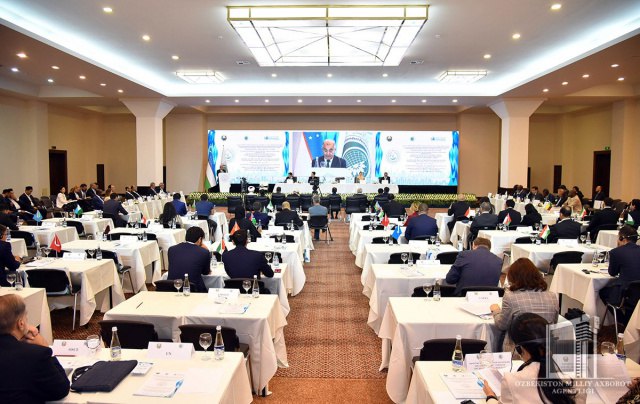
The Government portal of the
Republic of Uzbekistan
The 6th International Seminar of the OIC Independent Permanent Human Rights Commission kicks off in Tashkent
2019-10-08 | Society
On October 7, the 6th International Seminar of the OIC Independent Permanent Human Rights Commission on “Importance of promoting and protecting the rights of youth for building peaceful and democratic societies and sustainable development” kicked off in Tashkent.

The event is organized on the initiative of the Government of the Republic of Uzbekistan, the Independent Permanent Human Rights Commission of the OIC and the Office of the United Nations High Commissioner for Human Rights.
The seminar is attended by members of the OIC Independent Permanent Human Rights Commission, representatives of almost 50 OIC member states and national human rights institutions with observer status, as well as experts from the UN, UNODC, UNESCO, UNICEF, UNFPA, World Health Organization, Council of Europe, Shanghai Cooperation Organization and ISESCO, representatives of embassies and international organizations.
Uzbekistan is represented by members of the Senate and deputies of the Legislative Chamber, heads of government agencies, ministries, organizations, civil society institutions, and national experts.
The importance of promoting and protecting the rights of youth in building peaceful democratic societies and sustainable development will be discussed at the seminar. Particular attention will be paid to supporting the draft international UN Convention on the Rights of Youth.
Participants of the seminar of the OIC Independent Permanent Human Rights Commission will analyze the existing international and regional mechanisms for protecting and promoting the rights of youth. Based on best practices, practical proposals will be developed on ensuring the rights of youth in the state development strategy for stimulating youth to make a worthy contribution to further development of their country. Attention will be paid to the main problems that the youth of the OIC member states are faced. Seminar participants will provide conclusions on the analysis of the state youth policy and ongoing programs.
The document, which is expected to be adopted following the forum, will provide recommendations on development of youth policy aimed at expanding the direct participation of young people in the process of development of their country with full realization of their rights. It is planned that the final document of the sixth seminar will be presented at the next session of the Council of Ministers of Foreign Affairs of the OIC member states.
Gayrat Khonnazarov, UzA









